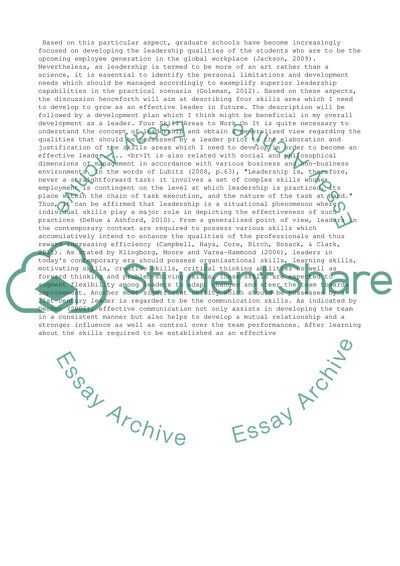Cite this document
(“Leadership Essay Example | Topics and Well Written Essays - 1500 words - 1”, n.d.)
Retrieved from https://studentshare.org/management/1468198-leadership
Retrieved from https://studentshare.org/management/1468198-leadership
(Leadership Essay Example | Topics and Well Written Essays - 1500 Words - 1)
https://studentshare.org/management/1468198-leadership.
https://studentshare.org/management/1468198-leadership.
“Leadership Essay Example | Topics and Well Written Essays - 1500 Words - 1”, n.d. https://studentshare.org/management/1468198-leadership.


